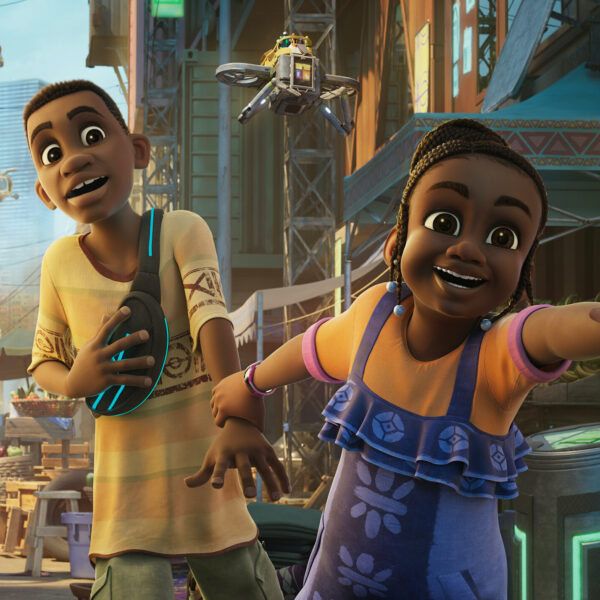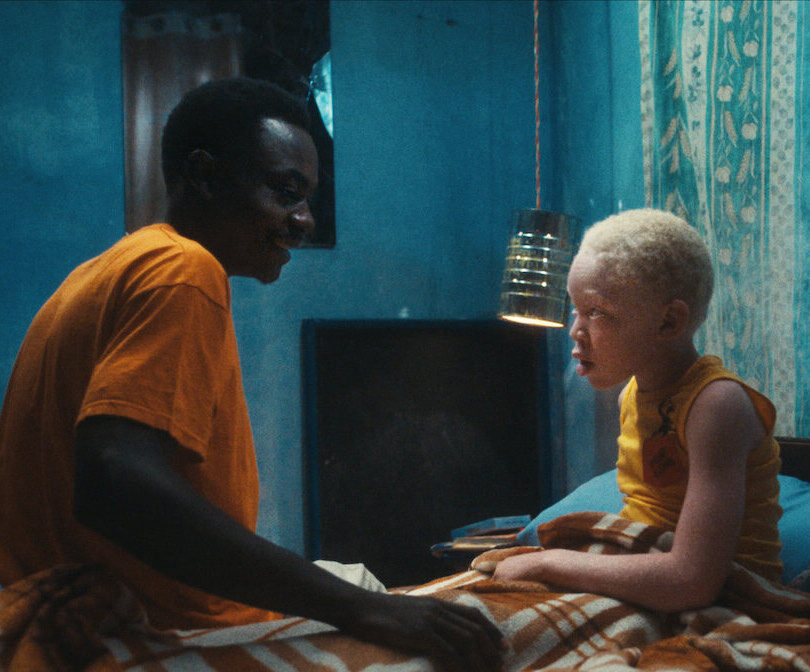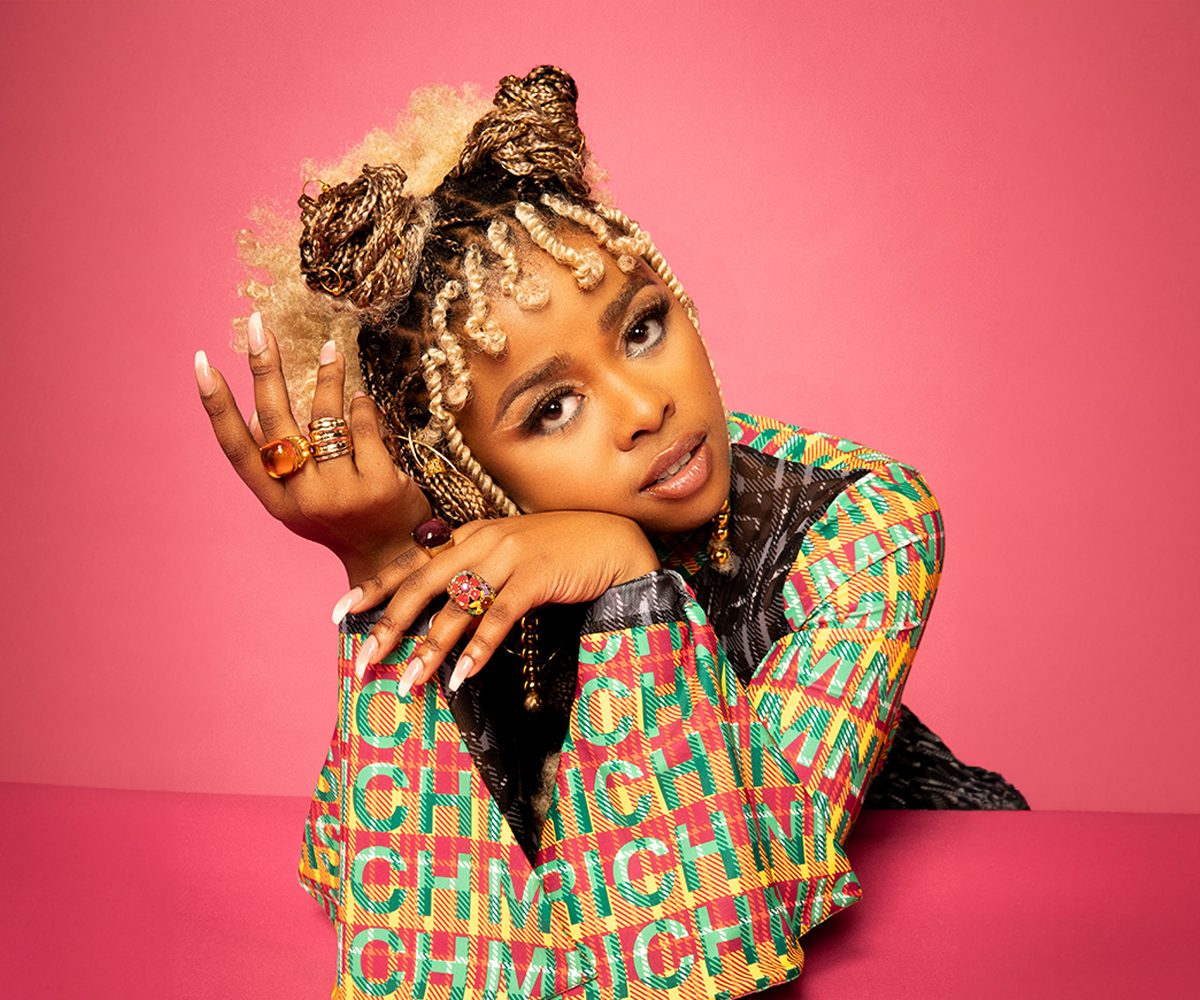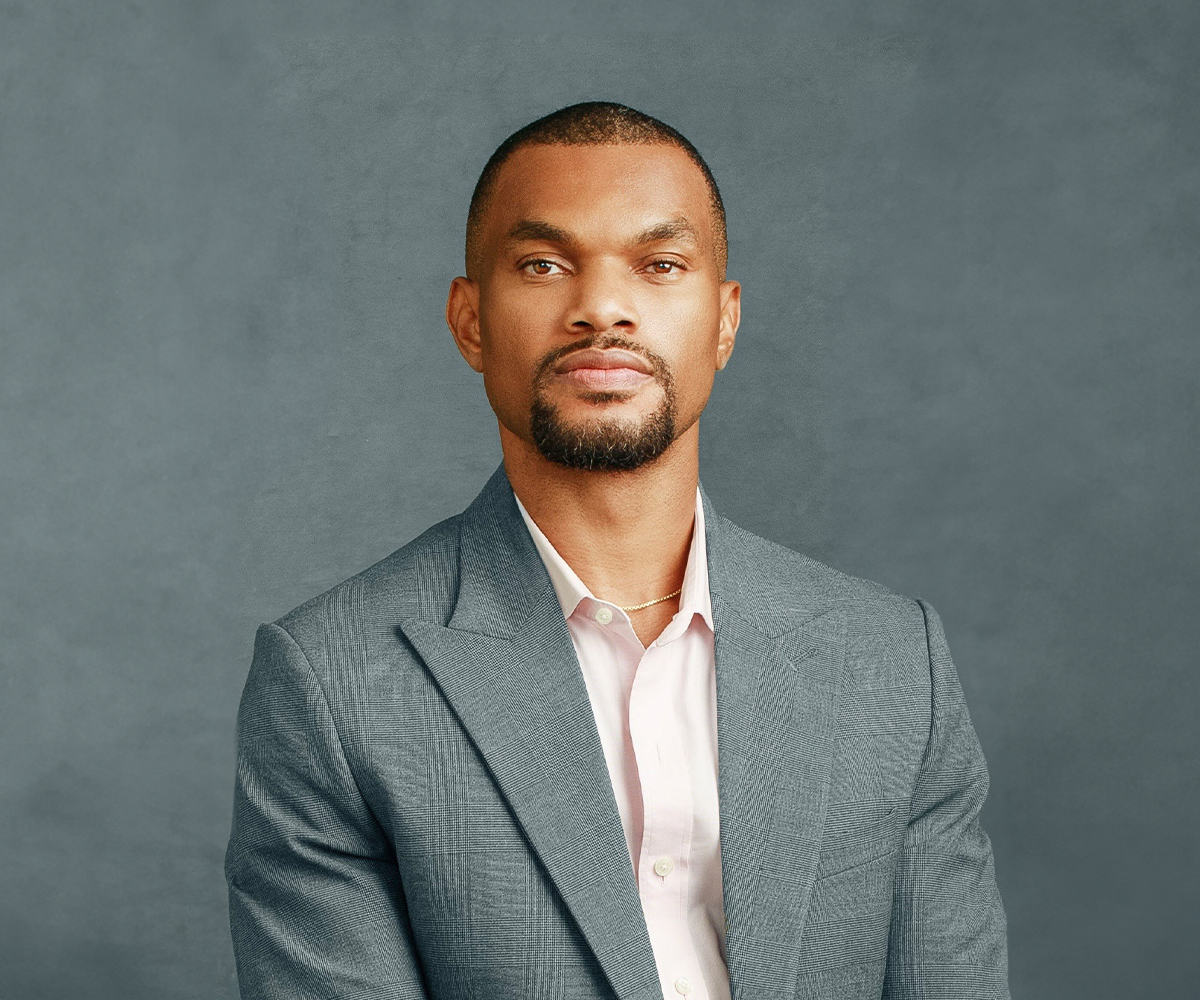
Photo Credit: The Walt Disney Studios
Film & TV
Olufikayo Adeola On Disney’s Iwájú As A Tool For Representation

Photo Credit: The Walt Disney Studios
By Wale Oloworekende
April 2024
African animation is going through something of a golden age. In 2023, Kizazi Moto: Generation Fire, an afro-fusionist animated short film series produced by South African animation studio, Triggerfish, premiered on Disney+ in a major boost to the continent’s nascent comics and animation industry. Less than a year after the groundbreaking release of Kizazi Moto, Disney announced the long-awaited release of Iwájú, another first-of-its-kind collaboration with the Pan-African British production house, Kugali Media.
Founded by three friends Olufikayo ‘Ziki’ Adeola, Hamid Ibrahim. and Tolu Olowofoyeku, Kugali initially started as a podcast service to discuss the African comics and animation industry. “We were interviewing different creators across Africa to understand the African creator space,” Adeola tells STATEMENT in a chat over Zoom one Monday in April. “It became obvious to us that what was needed was a company that could be a platform for African storytellers.”
Initially focusing on creating comic books for an ever-expanding African and diaspora audience, Kugali caught the attention of Walt Disney Animation Studios chief creative officer Jennifer Lee when she read a BBC feature about the animation studio and their ambition to “kick Disney’s arse” in Africa. Impressed by the scale of their dreams, Disney set up a line of communication with Kugali with the hopes of collaborating on a future project.
A little over four years down the line from that bold affirmation of competing vigorously with Disney in Africa, Kugali has teamed up with the animation giant to release Iwájú, a modern animated limited series set in Lagos that pays homage to the West African city’s indomitable spirit and sets a new course for African comics and animation.
STATEMENT spoke to the director of Iwájú, Olufikayo ‘Ziki’ Adeola, about teaming up with Disney for the series, the complexity of representing Lagos for a global audience, and the role of Iwájú as a beacon of light for African animation’s unfurling golden age.
How did Kugali Media come about?
Kugali’s origin story dates back to 2012. We were always interested in telling local stories at a global standard with proper details. We first started as a podcast and it was just Tolu (Toluwalakin Olowofoyeku) and I at the time. We were interviewing different creators across Africa to understand the African creator space, particularly comic books and animation. It became obvious to us that what was needed was a company that could be a platform for African storytellers. That’s what Kugali was trying to be for storytellers like myself as well as the other writers, artists, and creators in Kugali. It was around that time that Hamid (Ibrahim) joined. Tolu and I went to primary school together. Hamid found our podcast online and reached out to us, he became a co-founder and the rest is history.
There’s a famous interview you did with the BBC in 2018 where Hamid predicted that you’d compete with Disney in terms of African stories. Was there a model in place for telling those stories at that time?
Around the time of doing that interview, our focus was on comic books. We started off publishing comic books. At that time, we were known for the Kugali Anthology which was the first pan-African collection of comics from creators across the continent. At the time, we’d done Anthology One and Anthology Two, and we were beginning to work on Anthology Three. It was around that time that we heard from Disney. Our initial thoughts were centred on the comic book model where we would create books that could be turned into movies, video games, and animation. What Disney ended up doing was providing us with an opportunity to fast-track into animation.
How have you navigated the fast-tracking that comes with working with Disney?
It’s been very challenging because I liken it to being thrown into the deep end. Before working with Disney, I’d never written or directed in a professional capacity on that scale. I’d written screenplays and directed some stage plays when I was in school but nothing that came close to this sort of experience. I sometimes describe it as a baptism of fire because I had to figure out my job and what was expected of me whilst learning on the job. There was also the challenge of working with a company as old and powerful as Disney because Kugali is very young; so, there was a clash of cultures. Also, when you collaborate with someone creatively, you’re going to feel strongly about some elements and your collaborators are going to feel the same way about some things so there’s bound to be creative conflict. At the end of the day, those differences help to make the result stronger and allow you to grow as a person and company.
Can you expand on some of the cultural nuances that you knew had to be present in Iwájú?
I think Iwájú is unique because it’s one of the few Disney animation productions that has characters talking with a different kind of accent. With a lot of Disney shows, even if they’re not set in America, there is a uniformity in how they speak. I was adamant about Iwájú being different because it was based on real-life Lagos and the people on the ground in the city even though it was set in the future. That cultural specificity and recognizability needed to be in the show. I think Disney deserves credit because there was a lot of willingness on their part to understand our culture and the way we do things but, also, as an over 100-year-old company, they have a certain framework for doing things. I know that there were questions and discussions about the way a character would speak or if they should speak Yoruba or pidgin. Ultimately, we agreed that it was the way to go forward but it did take a few conversations to get them to understand what the overall vision was.
On the creative side of things, we had different ideas on how the plot should unfold. Sometimes I felt strongly about certain things and, other times, my co-writer (Halima Hudson) felt strongly about other things. Ultimately, I think what made its way to the script represents the best of both of us.
When did the conversation for Iwájú start and what was the timeline like?
The conversations for Iwájú started around 2020 but our dialogue with Disney started earlier. We were invited to pitch multiple ideas to them and Iwájú was one of the three ideas we sent in. After that process, Iwájú was then selected because it was the idea that made the most sense for a limited TV series. We knew that Iwájú was going to be the idea we worked on around March 2020 and the initial production timeline we had was fairly ambitious. The first press releases we made suggested a release date at some point in 2023 but, between the pandemic and many other things happening, the show ended up coming out in 2024. So, the whole process took almost five years.
A high point from the show was the authentic depiction of Lagos with elements like tricycles and traffic, how were you able to capture the essence of the city?
I think there are many layers to how we were able to preserve the authenticity of the city. First of all, I grew up in Lagos and I only left Lagos when I was 15, so I have the lived experience of having been in the city for my childhood and teenage years. In addition to that, many of the artists who worked on the show are from Lagos or have lived in Lagos at some point. Even the actors helped us bring that authenticity. There would be times when I’d written a piece of dialogue but the actor reading the dialogue would say that it wasn’t natural to them or suggest an alternative to make it sound better. Those little things helped the authenticity of the series and, in addition to that, we had cultural consultants who helped us. It was a team effort at the end of the day but having people with that Lagosian experience ultimately made it very comprehensive.
Another thing that made the series fascinating was how the story was centred around life on both ends of the city on the mainland and island, was that an idea you always knew you’d explore or did it come as you wrote?
The way I feel about stories is that I like to take different elements and have fun figuring out how they’ll fit into a larger piece. With Iwájú for example, I knew I always wanted to write about kidnapping in Lagos. The mainland-Island divide was another ingredient that I knew I wanted to write about at least three or four years predating Iwájú. I’ve been fortunate to visit several countries and cities and there are always higher-class and lower-class neighbourhoods but Lagos is one of the few places in the world whose geography naturally supports that socio-economic divide. I find that fascinating because those are the sorts of things that science fiction authors would invent for their work but Lagos just has that. So, even before Iwájú came up, I knew it was something I would want to explore and, when the opportunity came along, I knew it was the right time to tackle this theme.
Historically, Nigerian and African comics and animation have not enjoyed this level of support and patronage, do you think Iwájú is going to encourage more investment?
I like to make a comparison with afrobeats because I remember when D’Banj’s “Oliver Twist” came out in 2021 and it was the first time a Nigerian song was topping the charts in the United Kingdom. From then on, it’s just been an avalanche. We’re not just big in Africa, we’re big globally and I think Iwájú is going to be the beginning of a similar trend with African comics and animation. Projects like Iwájú and Kizazi Moto: Generation Fire are the first Triple-A animated projects to have emerged from the continent, or at least [to] be created by people from Africa. The reviews have been solid and the numbers have looked strong so it shows them that people have an appetite for these stories. I believe that if we have this conversation 10 years from now, there’ll be a plethora of animated movies and shows set in Africa and defined by African culture in the same way that we saw this transformation from music from 2012 till today.
What comes next for Kugali?
As I mentioned earlier, we started with comic books and our work with comic books is going to continue. We have a publishing deal with Disney where we are partnering with them on an imprint named Kugali Inc. Through Kugali Inc., we’ll be releasing a series of graphic novels over the next five years with the first novel coming out towards the end of this year or early next year. We are also looking at doing another project on the scale of Iwájú soon, another Triple-A animated project and we’re hopeful of making an announcement soon.


